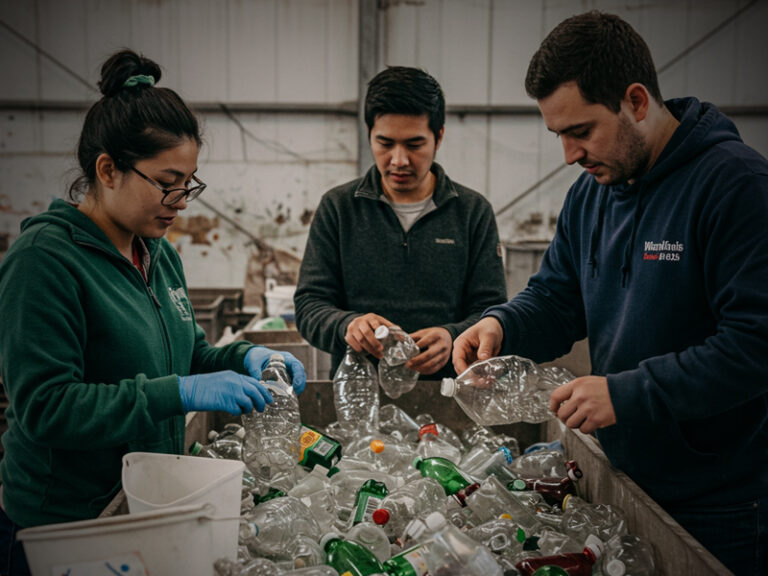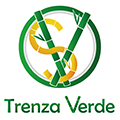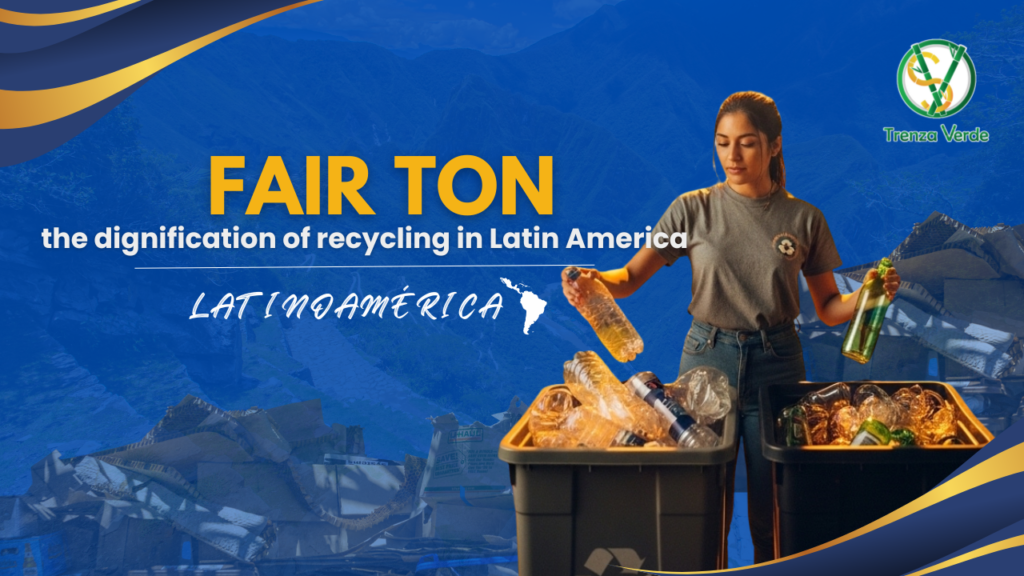Latin America Faces a Major Challenge—But There’s a Powerful Movement Rising
Every year, Latin America produces millions of tons of waste. Yet, the people who are truly on the frontlines of this crisis—the grassroots recyclers—are often overlooked. These everyday heroes play a key role in managing what we throw away, but most of the time, they work under the radar, in tough and unsafe conditions.
That’s where Fair Ton comes in—a fresh approach that’s shaking up the system. It’s not just about tracking how many pounds of plastic, cardboard, or glass are recycled. It’s also about how it’s done and who is doing the work. This initiative aims to make recycling more fair, more human, and more respectful of those who make it happen.
Backed by the Latitud R platform and the Avina Foundation, Fair Ton is built on global frameworks like the Sustainable Development Goals (SDGs) and the TNFD (a set of international guidelines helping businesses measure their environmental impact). Together, these efforts shape a bold and hopeful vision: one where recycling not only protects the planet but also uplifts lives and drives real change in our cities and communities.
What Is “FAIR TON”?
Imagine a ton of recycled material—cardboard, glass, or paper—but collected under fair, safe, and dignified conditions. That’s what Fair Ton, or “Fair Ton,” is all about.
It’s not just about recycling. It’s about recycling the right way—making sure the people behind the process are seen, respected, and protected. Fair Ton meets these key standards:
Materials are collected clean, dry, and separated right at the source.
Recyclers are paid fairly for their work.
Workers receive formal job training and are officially recognized.
Access to health care, social security, and safety protections is a must.
And most importantly, recyclers are seen and included as valuable players in the system.
Where Did This Idea Come From?
Fair Ton isn’t just a good idea—it’s a collective movement. It was developed by Latitud R and the Avina Foundation, alongside local recyclers, young people, and academics. In March 2025, a workshop at the Simón Bolívar Andean University in Ecuador helped shape and validate the model through open dialogue with these key voices.
This approach is rooted in participation, not top-down policy.
Countries and Regional Reach
Fair Ton is already in action across Argentina, Colombia, Peru, Bolivia, Chile, and Ecuador. And it’s not just about fancy machines or flashy tech—it’s about bringing dignity and justice to the people who make recycling possible every day.
Local cooperatives in these countries are turning the concept into real-world results.
The Impact So Far
By applying this model in 2023 alone, Tonelada Justa helped prevent 150,000 tons of CO₂ emissions—that’s equivalent to what over 33,000 cars would produce in a year!
In Argentina, the cooperative Recuperadores Urbanos del Oeste (RUO) collected over 4,300 tons of cardboard, glass, and paper. While their energy use led to 195 tons of CO₂ emissions, their recycling work helped avoid an estimated 9,700 tons of emissions. That’s the kind of balance we need more of.
But here’s the hard truth: only 10% of grassroots recyclers in Latin America are formally organized. The vast majority are still working without recognition, support, or proper conditions.
Tonelada Justa reminds us that true sustainability isn’t just about what we recycle—it’s about who makes it happen, and how we treat them.

Fair Ton: Rethinking Recycling in Latin America
The Fair Ton approach isn’t just another recycling campaign—it’s a call for a real transformation in how Latin America thinks about waste, work, and environmental justice.
Because let’s be honest: recycling isn’t truly sustainable unless it respects the people behind it. It’s not just about collecting more bottles and boxes. It’s about doing it in a way that dignifies the workers who keep the system running.
Across the region, this means more than just cleaner streets. It means building green jobs, ensuring access to social protection, formalizing informal labor, and promoting climate justice. And it places grassroots organizations and recycling cooperatives right where they belong—at the center of public policy and sustainable development.
What Does It Take to Scale a Project Like This?
If Fair Ton is going to grow—and attract long-term funding from both public and private sectors—there are a few key ingredients that need to be in place:
🟢 Legal recognition and formal frameworks: Recyclers need to be officially recognized as key players in waste management systems (like the “urban recyclers” model in Argentina and Colombia). That recognition helps unlock rights and resources.
💰 Public-private financing: Dedicated budgets are essential—for equipment, safety gear, healthcare, training, and institutional support. Real change takes real investment.
🧩 Flexible organizing models: One size doesn’t fit all. The initiative should embrace the wide diversity of recyclers—whether they work in cooperatives or independently—just as many regional efforts already do.
📢 Civic education and source separation: A clean recycling process starts at home. Communities need to learn how to separate waste at the source so recyclers get clean, reusable materials under fair conditions.
📊 Clear data and impact tracking: To justify further funding and expansion, projects must track their social, economic, and environmental impact—both in numbers and in human stories.
At the end of the day, Tonelada Justa isn’t just about recycling—it’s about reimagining the system so that people and the planet both win.
If you’re curious about how this could be implemented in your community or want to support similar initiatives, stay tuned—we’ll be diving deeper into real-life success stories and lessons learned across Latin America.
Curious to learn more about this initiative?
We’ve got you covered—check out the links below to dive deeper into the story and see how it’s making a real impact.
América Latina avanza hacia un reciclaje más justo, inclusivo y sostenible _ https://www.swissinfo.ch/spa/am%C3%A9rica-latina-avanza-hacia-un-reciclaje-m%C3%A1s-justo%2C-inclusivo-y-sostenible/89333989
¿Qué es Tonelada Justa?_ https://www.facebook.com/LatitudR/posts/1125148756320774
Innovación social para una economía circular justa_ https://www.avina.net

